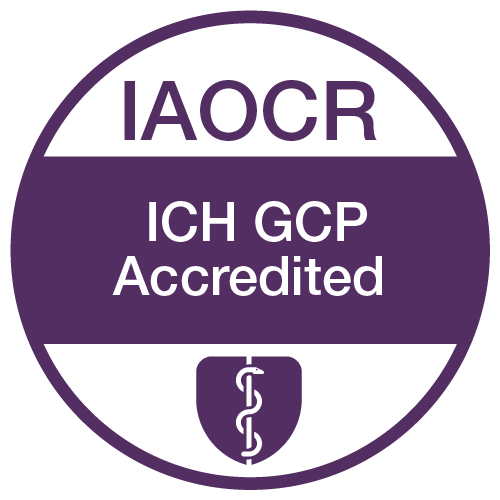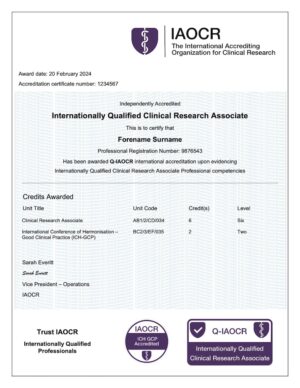Pfizer and Valneva have recently announced the discontinuation of a significant percentage of participants in the U.S. who had been enrolled in the Vaccine Against Lyme for Outdoor Recreationists (VALOR). The rationale for the discontinuation of this Phase III clinical trial has been cited as “violations of Good Clinical Practice (GCP) at certain clinical trial sites run by a third-party clinical trial site operator”.
For IAOCR this highlights the critical importance of ensuring that all staff working on clinical trials should be competence verified (not just trained) in ICH-GCP, regardless of number of years’ of experience. Competency in Good Clinical Practice is something that ALL clinical research professionals should be able to routinely demonstrate and validate.
GCP is the international ethical and scientific quality standard for clinical trials that all clinical research professionals need to follow, often referred to as the ‘right first time’ approach. To ensure compliance with GCP your clinical research team must deliver on the following three critical components:
- Good study design
- Good execution
- A “Right First Time” and “Quality Built In” approach
These are ALL essential to the safe, successful and timely delivery of a clinical trial, and yet there still appears to be situations where these components are not being met. The disruption caused by this violation feels like a significant setback for clinical research. The ICH-GCP E8 (R1) guideline provides guidance on the clinical development lifecycle, including designing quality into clinical studies. Intrinsic to meeting this “Quality Built In” requirement is a competent clinical research workforce. IAOCR is so passionate about this that in 2017 we lobbied for change to the ICH-GCP Guidelines to tighten regulations, and new guidelines were introduced in 2021 across Europe, affirming the aforementioned critical components. However, this news demonstrates that more is still needed to be done to raise the Global standards of the Industry.
So how do you ensure that the people working on your clinical trial are competent in ICH-GCP? Training does not necessarily equal competence, nor does number of years’ experience.
IAOCR is the world leader in clinical research competence verification and offers an internationally recognised, gold standard ICH-GCP accreditation, based on core competencies ratified by the industry. This accreditation is suitable for ALL clinical research professionals and can be completed online through the IAOCR assessment portal a recent introduction by IAOCR to increase accessibility of this fundamental accreditation to everyone working in clinical research. Participants successfully completing the assessment and achieving formally recognised accreditation, provide reassurance to their employers, their team and ultimately to patients that they have evidenced their ability to work credibly, ethically, and safely to global best practice standard
It is important to note that: “The clinical trial remains ongoing with other sites not operated by the third party, and Pfizer continues to enrol new participants at those sites.”










